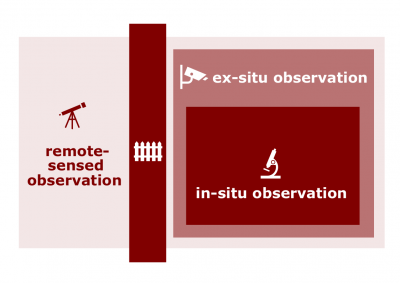Difference between revisions of "Observation"
| Line 1: | Line 1: | ||
[[File:Observation.png|400px|thumb|right|[[Observation]]]][[Observation]] is any act of recognizing and noting any subject, fact, occurrence, situation, and/or state of affairs, sometimes involving measurement with instruments, as well as the [[data-gathering technique]] that is based on watching something or someone. | [[File:Observation.png|400px|thumb|right|[[Observation]]]][[Observation]] is any act of recognizing and noting any subject, fact, occurrence, situation, and/or state of affairs, sometimes involving measurement with instruments, as well as the [[data-gathering technique]] that is based on watching something or someone. | ||
| − | An | + | An ''observation'' can also refer to a statement based on something one has seen, heard, or noticed. In [[business analysis]], ''observation'' is a means to elicit requirements by conducting an assessment of the stakeholder's work environment. |
Revision as of 22:54, 11 October 2020
Observation is any act of recognizing and noting any subject, fact, occurrence, situation, and/or state of affairs, sometimes involving measurement with instruments, as well as the data-gathering technique that is based on watching something or someone.
An observation can also refer to a statement based on something one has seen, heard, or noticed. In business analysis, observation is a means to elicit requirements by conducting an assessment of the stakeholder's work environment.
Definitions
According to the BABOK Guide (3rd edition),
- Observation (business analysis). Studying and analyzing one or more stakeholders in their work environment in order to elicit requirements.
